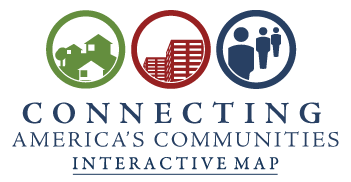BTOP in Action
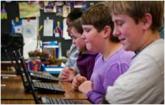
On December 21, 2010, the Vermont Council on Rural Development announced that it would expand its e-Vermont Community Broadband Project to 12 new communities, including Bridgewater, Calais, Castleton, Dover, Fairfield, Hardwick, Jay/Westfield, Middletown Springs, Moretown, Morristown, Richford, and Vergennes. Building on the previous success of 12 first round communities, e-Vermont began rolling out a broad range of digital literacy training and tools through its “e-Partners” and Community Directors to these new communities.
For example, one partner, the Small Business Development Center is offering workshops for local community members and small rural businesses with an introduction to how online resources can help improve their businesses. In addition, staff from the Vermont State Colleges are conducting workshops to build digital literacy skills in all 24 communities. The Vermont State Colleges also provide webinars on key topics such as Internet Safety for Parents and “train the trainer” programs for community members who want to learn to teach basic Internet skills.
Through Digital Wish, the e-Vermont project will help schools implement computer learning initiatives by leading digital literacy courses, offering sample curricula, recommending acceptable usage policies, providing basic technical support, and deploying laptops in fourth through sixth grade classes. As of December 2010, Digital Wish and the e-Vermont project had reached 665 students and 42 educators in 24 schools, and deployed more than 600 computers into the 12 first round communities.
The project also has a page on Facebook and Twitter with the latest news.
Last Updated: October 18, 2011.
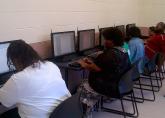
By October 2011, WinstonNet opened two new computer centers and upgraded 32 other centers at various community and educational institutions throughout Forsyth County, N.C. These centers were created as part of a countywide initiative to provide new computer resources and educational opportunities.
BTOP funds have allowed WinstonNet to deploy more than 296 new workstations, serving more than 12,665 users per week. Along with these computers, WinstonNet also provides classes on a range of subjects including computer basics, keyboarding skills, email and social media techniques, Microsoft® Office, web design, and English for Speakers of Other Languages (ESOL). Additionally, some of the computer labs are providing career development assistance. For example, the Forsyth Technical Community College centers provide classes devoted to resume creation, job searches, and interview skills.
WinstonNet’s goal is to offer affordable broadband and digital literacy training to the entire community. The project offers training classes in English and Spanish, as well as provides special software and customized furniture to help residents with physical disabilities use the new computer resources. These extra steps are helping Forsyth County train residents who will possess the digital skills needed for today’s economy.
Last Updated: December 7, 2011
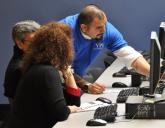
The Youth Policy Institute (YPI) opened its first public computer center on October 18, 2010. The Time Warner Cable Technology Center is one of 80 new computer centers YPI will open in the Los Angeles area. California State Assembly member Felipe Fuentes joined YPI staff at an opening ceremony that showcased the facility and the 24 refurbished desktops donated by Time Warner Cable. Besides accessing computers and broadband Internet, visitors to the center can attend a variety of digital literacy and educational classes supported by BTOP funds, including computer basics, Internet fundamentals, English for Speakers of Other Languages (ESOL), SAT preparation, Federal and state tax e-filing, and resume and cover letter techniques.
The center’s main focus is to provide classes that meet the interests of the area’s low-income, Hispanic population. In response to poor literacy rates in the community, the center created the Leamos Spanish Literacy Program, which utilizes educational software to teach Latino immigrants basic computer skills as well as how to read and write in Spanish. A survey of local middle school students led to the creation of the Game Development Workshop, which teaches participants simple video game coding and design techniques. As of April 2011, more than 1,821 community members have participated in the center’s training classes. The center also houses a YPI workforce development program that is training clients for health careers funded by an American Recovery and Reinvestment Act (ARRA) program through the U.S. Department of Labor.
The project is also using BTOP funds to create a total of 20 new jobs to help facilitate training and maintain the computer labs. As of April 2011, the Youth Policy Institute has filled ten of these positions. The project also has a page on Facebook with the latest news.
Last Updated: October 18, 2011.
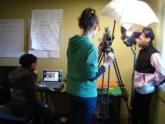
ZeroDivide’s Generation ZD Literacy (GenZD) Program held digital literacy workshops for more than 2,546 participants in six states with BTOP funds. These workshops were created to boost sustainable broadband adoption and enhance educational achievements among low-income youth. ZeroDivide partners with seven youth media organizations in California, Hawaii, New Mexico, Oregon, Utah, and Washington to provide each participant with approximately 60 hours of training on a variety of topics, including computer basics, digital media production, and workforce skills development.
For example, Access Humboldt, a non-profit public service media organization in northern California, provides community journalism and digital media editing classes, preparing students for a career in broadcasting. Reel Grrls, an organization seeking to empower young women through media production, provides a variety of hands-on workshops for teenage girls including stop-motion animation and documentary filmmaking. SpyHop, a non-profit youth media arts and education center in Utah, offers an apprenticeship in animation and 3D training. Students who participate in the apprenticeship create personal portfolios of their work and develop workforce skills through a real-life client project.
ZeroDivide has also initiated outreach and awareness-building activities to demonstrate how GenZD is creating a new generation of broadband users and technology leaders. In May 2011, ZeroDivide hosted a two-day summit in San Francisco, where all seven partner organizations exchanged strategies and success stories on how they were increasing broadband adoption and improving youth digital literacy curriculum. The workshops helped the partners develop new strategies to sustain and increase their efforts in improving digital literacy among their community members.
Last Updated: December 7, 2011
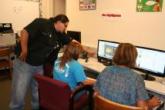
ZeroDivide is leapfrogging the digital divide in 19 tribal communities across rural southeastern California, using a unique community-driven approach to provide broadband access and increase sustainable broadband adoption. Known as the Tribal Digital Village (TDV) project, ZeroDivide is partnering with the Southern California Tribal Chairmen’s Association (SCTCA) to provide approximately 8,900 tribal residents with digital literacy training. The TDV project is also working to provide 2,000 tribal homes with affordable wireless broadband services. As of June 2011, BTOP funding has helped the project provide training to more than 650 people and deploy broadband service to 955 tribal households.
Historically, geographic isolation and cultural barriers have resulted in Native Americans’ broadband adoption rates being among the lowest of any ethnic group within the continental United States. To improve these rates, ZeroDivide is offering broadband awareness and digital literacy trainings on a variety of topics, including computer basics, Internet fundamentals, and using online communication tools. The project is also utilizing its newly installed digital media production equipment to enhance its curriculum and allow participants to learn through a mix of live classroom instruction and interactive software.
TDV is also expanding a high-speed wireless Internet network to bridge the digital gap to these reservations. BTOP funds are helping the project expand the reservations’ network into more than 2,000 homes on 15 of the 19 tribal communities in San Diego County.
Last Updated: December 7, 2011





